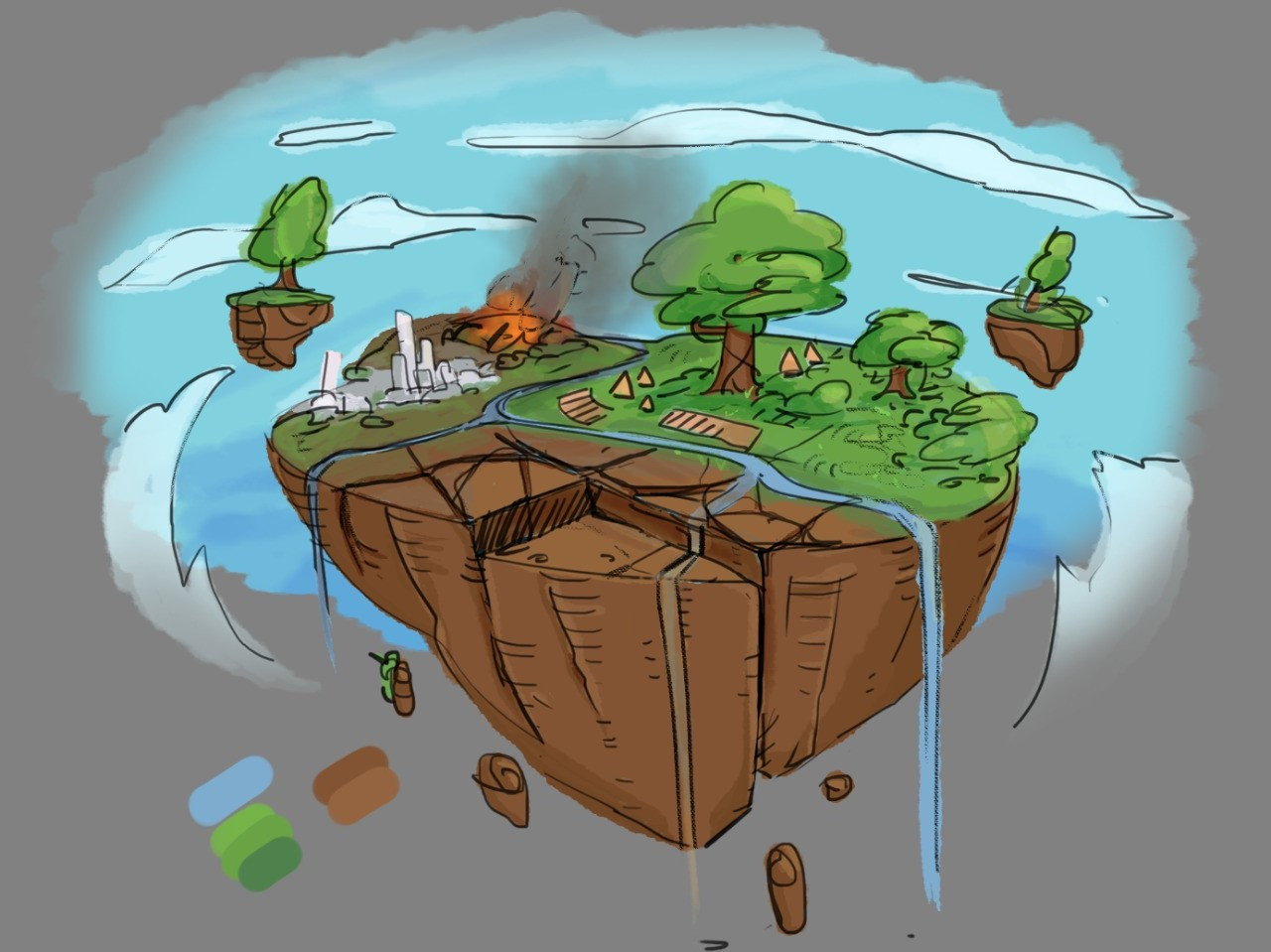Due to Brazil's global importance to the climate as the world's most biodiverse and fifth largest country, there is an urgent need to strengthen agency and engagement in the climate cause and environmental issues among Brazilian youth.
European youth are global frontrunners in climate action, but to halt global warming, transformation is needed on a massive scale. Brazilian youth have scale and impact as the world´s most biodiverse country but, for many valid reasons, lack agency compared to their European peers. The project Politics of Nature // The Mobile Game proposes to address these gaps with a constructive approach aiming to engage, inspire and connect for action.
The project wants to connect Brazilian and European youth in the fight against climate change through a digital version of the game Politics of Nature. This mobile game "PoN! – A Ilha dos Tatus” will be the result of a large collaboration including Brazilian youth climate movements, game developers, institutions, NGOs, students, municipalities and experts.
Engaging Brazilian youth in climate action
With the current background of climate crisis, pandemic and political polarization, young Brazilians represent the best hope for change.
The PoN mobile game will be a fun and thought provoking collaobrative game for 12 to 15 years-old based on profound research and philosophy, but duly simplified. This project builds on a co-creative Brazilian/European process which started in 2018 and involves youth climate NGOs Engajamundo and Fridays For Future Brazil (FFF).
With the Politics of Nature Mobile Game, its pedagogical toolkit and a programme of physical/hybrid socio-educational events, the project strives to support youth in expressing their full potential for local change through new partnerships. It aims to do so by:
- developing and testing an open-source mobile game in a collaborative process involving youth from the periphery of the pilot city of Santos;
- promoting the game accompanied by a pedagogical toolkit for the target group via the EUNIC members´ network of 500 schools, an online campaign, and partner networks;
- connecting target group locally via events in Brasilia, São Paulo and Rio de Janeiro for and with Brazilian youth, to be organized in a fair and inclusive collaboration - and via online events involving Portuguese youth.
After being shortlisted in July 2021, the project partners in step 2 reworked their initial proposal, strengthened their partnership and already piloted some elements, by - among other things - conducting market research, publishing a call for Brazilian gaming developers, and organising workshops, meetings and gaming sessions.
Being part of step 2 and being able to participate in the activities led me to have a better understanding of the project and a better understanding of my own work as a producer, that could lead me to contribute even more to the project. More than that, now I have a better understanding of how to work with so many different partners and people, from Brazil and abroad.
Antonio Carlos Sandoval, producer

